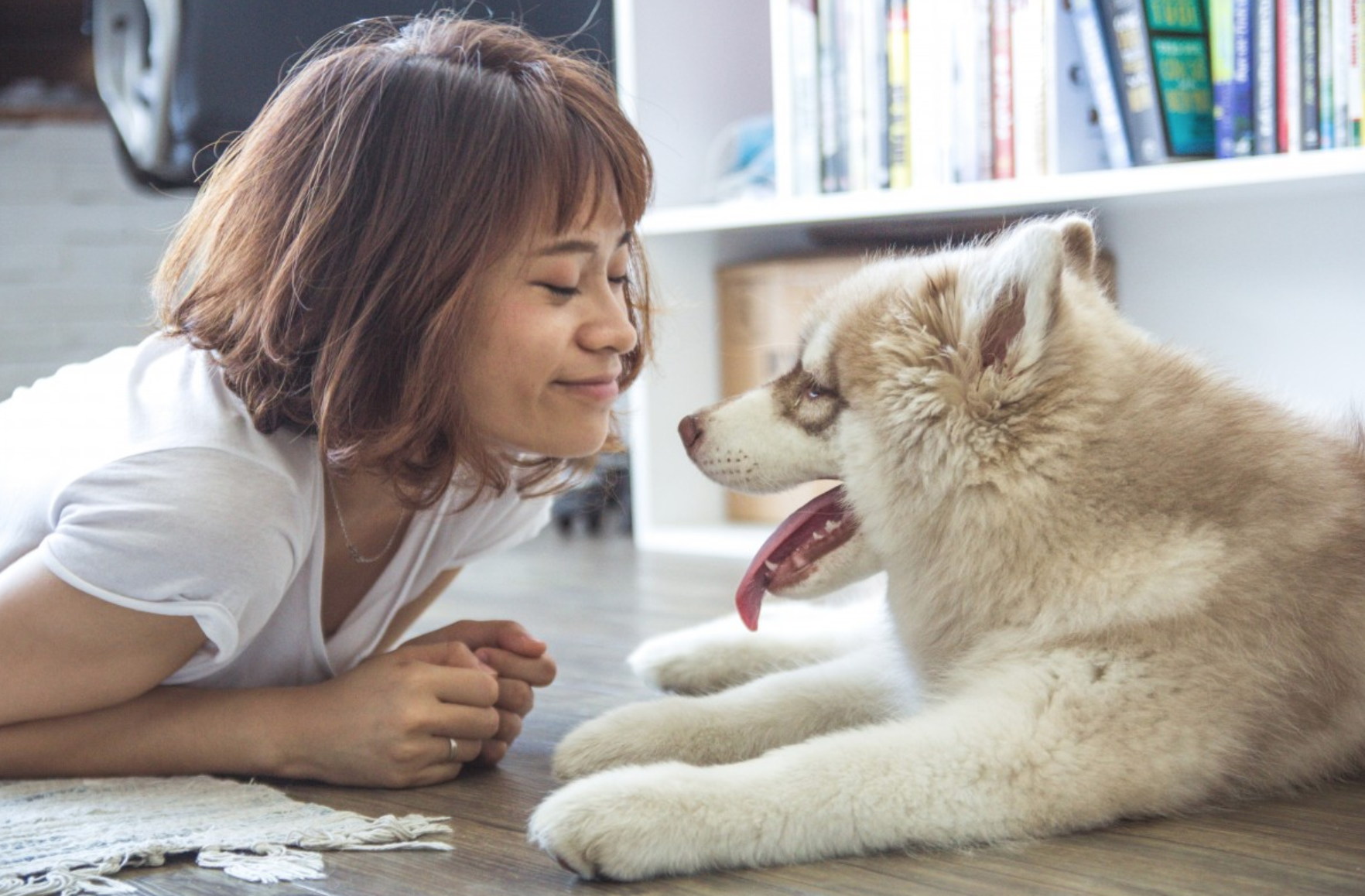The investigation of attachment theory tends to lend itself to the discussion of romantic relationships, as they are typically our safe havens in times of stress (4). It’s often applied to child and parent relationships, and sometimes even friendships as well; however, as it turns out we may have been forgetting one of our greatest supporters during our discussions of attachment theory – our pets!
Pets, especially dogs, have a significant reputation for being man’s best friend – some of our greatest companions walk on four legs and sleep the majority of their days away. As we explore attachment theory in the context of human-pet relationships, we discover the great significance of the bonds formed with our furry friends. These relationships, often characterized by closeness, warmth, and emotional involvement, can tend to resemble other forms of attachment, extending attachment theory to include the unique dynamics shared between humans and their pets, especially in times of stress (2).
As we know, emotional support is important to our physical and mental wellbeing, as support can improve the way that we respond to stress (2). In the case of pets, proximity to a pet was found to be beneficial during distress or exploration tasks, similar to proximity to human attachment figures, finding that human-pet relationships can be conceptualized as attachment bonds (1, 3). Some people have closer relationships to their pets than others, as well – personal comfort with being around animals matters, too. It is possible that someone might be anxiously or avoidantly attached to their pet. Being anxiously attached to a pet was linked to psychological distress, while avoiding attachment is connected to lower extraversion. These attachment styles with pets also tended to reflect peoples’ attachments to other humans, as well. A moderate connection was found between how people attach to their pets and how they attach to other humans. If someone is insecurely attached in human relationships, they are likely to show similar insecurities in their relationships with their pets (1).
So, should you go out and adopt a dog to improve your wellbeing right as soon as you finish reading this article? Not so fast! Well, while pets can be great companions and listeners, providing unconditional love, acceptance, and emotional support, it is still important to have human connections as well. After all, your dog isn’t going to be the one to give you advice on which career path to take – but they sure will look adorable while they listen to your problems!
- Zilcha-Mano, S., Mikulincer, M., & Shaver, P. R. (2012). Pets as safe havens and secure bases: The moderating role of pet attachment orientations. Journal of Research in Personality, 46(5), 571-580.
- Ozbay, F., Johnson, D. C., Dimoulas, E., Morgan, C. A., Charney, D., & Southwick, S. (2007). Social support and resilience to stress: from neurobiology to clinical practice. Psychiatry (Edgmont (Pa. : Township)), 4(5), 35–40.
- Zilcha-Mano, Sigal & Mikulincer, Mario & Shaver, Phillip. (2011). An attachment perspective on human–pet relationships: Conceptualization and assessment of pet attachment orientations. Journal of Research in Personality. 45. 345-357. 10.1016/j.jrp.2011.04.001.
- Jakubiak, B. K., Fuentes, J. D., & Feeney, B. C. (2023). Perceptions of oneself and one’s spouse following a stressor discussion predicting attachment insecurity over one year. Journal of Social and Personal Relationships, 40(10), 3195-3219.

I really liked your take on the article and think it is important how you highlighted the need for human support as well as animal support. While the results illustrated how pets can provide both a secure base and a safe haven for humans, it is also necessary to acknowledge what they cannot provide as well. Finding the balance between having these needs met from pets and humans is important to maintaining security as well as finding support from different outlets. I think these findings could convince people to adopt pets for good reason but they should not rely on receiving this support from only an animal.
I love this parallel between connections with pets and other humans, especially as it seems that social media is full of people whose pets are basically their children. People’s pets get pampered and shown off, much as some people do their kids. Your article highlights how beneficial these pets can be in one’s life and providing support in times of need or exploration. Like Lindsay said, though, I think you noted an important caveat in that we must still have a balance, not replacing our human connections with pets, rather supplementing them to have a fuller support network.
This is a really interesting analysis of the paper that we read! I like that you highlighted the connection between peoples’ attachment to their pets and to other humans, and cautioned against the use of relationships with pets as a substitute for human connection. However, this does recall the findings that we’ve discussed that it is possible to make your overall attachment style more secure over time with healthy relationships. I wonder if secure attachment to a pet could improve a person’s overall attachment tendencies and allow someone who typically tends toward insecure attachment styles to form more secure bonds with others in their lives, including humans.
I thought this was a cool finding: “If someone is insecurely attached in human relationships, they are likely to show similar insecurities in their relationships with their pets.” This correlation (although moderate) was surprising because our relationships with humans and pets are seemingly so different. And yet, how we interact with humans can relate to how we interact with our pets. I was also surprised that people could even have insecure relationships with their pets — it made me wonder why have a pet in the first place if you find it to be unsupportive or unreliable?